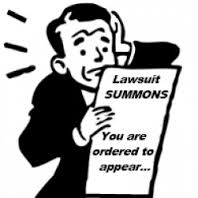
Miracle Foods v. D&H Enterprises Ltd. 1979] B.C.J. No. 1965, 10 B.C.L.R. P 58. Establishes a four part test for setting aside a default judgement.
A default judgement is obtained when the plaintiff properly serves a defendant with a Petition or a Notice of Claim and the defendant fails to file a Response at the Court a Registry within the time allowed by the Surpeme Court rules.
The Test:
- That the applicant did not willfully or deliberately fail to enter an appearance or file a defence to the plaintiff’s claim,
- That the application to set aside the default judgment was made as soon as reasonably possible after obtaining knowledge of it, or explain any delay in bringing the application,
- That the applicant has a meritorious defence or at least a defence worthy of investigation, and
- Establish the foregoing to the satisfaction of the court through affidavit material. The court’s application of this test involves an exercise of discretion when assessing the weight given the test’s individual factors and reasonableness of the defendant’s explanation in each case.
Where a defendant has not received notice, the granting of default judgment becomes a failure of natural justice. The defendant has been deprived of their right to be heard and the default judgment is considered a nullity, which the defendant is entitled to have set aside as of right.
See Bache Halsey Stuart Shields Inc. v. Charles Estate [1982] B.C.J. No. 1757, 40 B.C.L.R. 103




